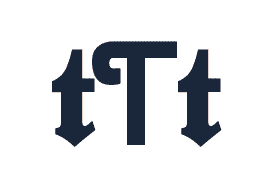Today we’re putting two browsers head-to-head: Vivaldi and Tor. You might be thinking, “Aren’t all browsers the same?”
Well, you’d be surprised! From performance and compatibility to privacy and unique features, there’s much more to these digital gateways than meets the eye.
So, let’s dive in and explore the Vivaldi vs. Tor battle to see which one might better fit your browsing needs.
Fun Fact: Tor, on the other hand, stands for "The Onion Router" because of its multi-layered approach to privacy and anonymity. Originating from a U.S. Naval Research project, it's now used worldwide by folks who want to keep their online activities under wraps.
Comparison: Vivaldi vs. Tor
Here are the seven (7) features for comparison;
Feature 1: Performance
When choosing between Vivaldi and Tor, another critical consideration is performance.
Performance can include factors like the speed at which web pages load, how smoothly videos stream, and how much computer memory the browser uses.
Vivaldi’s Speed, Stability, and Resource Usage
Vivaldi is a bit of a speed demon. It’s known for its quick load times and smooth operation. Built on the Chromium engine, Vivaldi has access to all the performance benefits of this widely-used technology.
This makes it a strong performer, especially on websites or platforms that require higher processing power.
By contrast, Vivaldi is also gentle on your system resources. While using Vivaldi, you’ll notice less lag and minimal impact on your computer’s memory and CPU, especially compared to many other mainstream browsers.
This makes Vivaldi an excellent choice if you usually have many open tabs or your device is a bit older.
Tor’s Speed, Stability, and Resource Usage
Tor, on the other hand, prioritizes privacy over performance. This means it’s not the fastest browser out there.
When you use Tor, your internet traffic is routed through several servers to mask your online activity. This multi-step process inherently slows things down.
While Tor is stable and reliable, it might not be the best choice for resource-intensive activities like streaming high-definition videos or playing online games.
Its advanced privacy features demand more from your system, leading to slower performance.
Comparative Analysis
In a straight race, Vivaldi would cross the finish line first. It’s faster and lighter on system resources, making it a better choice if performance is your top priority.
However, Tor’s extra processing time might be a worthwhile trade-off if privacy trumps speed in your book. As with most things, it all comes down to what you value most.
Is there a better browser than Vivaldi?
There are a few contenders, like our previously discussed Orion Browser, regarding speed and performance.
But Vivaldi holds its ground quite well when considering the balance between performance, privacy, and customizability.
Feature 2: User Experience
User experience is another crucial factor to consider when choosing a browser. A browser’s user interface (UI), ease of use, and customization options can significantly affect how enjoyable and efficient your online experience is.
User Interface and Customizability in Vivaldi
Vivaldi is a powerhouse when it comes to user customization. Its philosophy of putting the user first is evident in the level of control it offers.
You can customize almost every aspect of the browser’s interface, from tab positions to keyboard shortcuts.
Vivaldi’s interface is sleek and modern, offering an uncluttered and focused browsing experience. It also includes unique features like stacking and tiling tabs, a note-taking function, and even a built-in ad blocker.
User Interface and Customizability in Tor
Tor, on the other hand, offers a more streamlined and consistent interface. While it might not offer the same level of customization as Vivaldi, Tor still provides a clean and intuitive user interface.
This simplicity can be appealing if you prefer a ‘ready to go’ browser that doesn’t require tweaking.
One thing to note about Tor is its focus on privacy, even within the browser. It discourages users from full-screen browsing to prevent websites from determining your screen size, which could be used to track you.
Comparative Analysis
Both Vivaldi and Tor offer appealing user experiences but in different ways. If you’re the kind of person who likes to tailor every aspect of your browsing experience, Vivaldi is your best bet.
But if you prefer a more straightforward, ready-to-use setup that respects your privacy, Tor might be more your speed.
If you’re wondering which browser is better than Tor regarding user experience, you might want to explore other browsers like Orion or Arc Web Browser.
Feature 3: Compatibility
In the age of multiple devices and operating systems, compatibility is essential for any web browser. Let’s see how Vivaldi and Tor stack up.
Vivaldi’s Compatibility with Different Devices and Operating Systems
Vivaldi boasts impressive compatibility. Initially, it was available only for desktop systems like Windows, macOS, and Linux.
However, in 2019, it expanded its reach and launched a version for Android devices. Vivaldi covers you whether you’re a Windows user or a Mac enthusiast.
One of the notable aspects of Vivaldi is its seamless synchronizing ability across various devices. If you’re using Vivaldi, you can sync your bookmarks, passwords, and more, providing a cohesive browsing experience.
Tor’s Compatibility with Different Devices and Operating Systems
Tor also offers broad compatibility. It’s available for Windows, macOS, and Linux and has a mobile version known as Tor Browser for Android.
For iOS users, while there isn’t an official Tor Browser app, the Tor Project recommends an Onion Browser based on Tor.
However, Tor might not work as smoothly with all websites. Some sites block Tor users, while others use CAPTCHAs to confirm you’re not a bot.
Tor’s privacy features can make it look like bot activity to some servers.
Comparative Analysis
Regarding compatibility, both Vivaldi and Tor fare well, offering support for various devices and operating systems.
Vivaldi may offer a more seamless synchronization experience, but Tor provides unmatched anonymity across platforms.
Suppose you’re interested in how other browsers compare compatibility. In that case, you might want to read our comparison of the Orion Browser vs Safari or our review of the Orion Browser vs Chrome.
Feature 4: Add-ons and Extensions
Add-ons and extensions can significantly enhance your browsing experience by adding new features and functionalities. But how well do Vivaldi and Tor support these valuable tools?
Add-ons and Extensions in Vivaldi
Being built on the Chromium engine, Vivaldi enjoys access to the vast library of extensions available on the Chrome Web Store.
You can add it to Vivaldi, whether it’s an ad-blocker, a password manager, or a productivity tool. Vivaldi also offers built-in tools like note-taking and screenshot features, reducing the need for extra extensions.
Add-ons and Extensions in Tor
Tor’s stance on add-ons and extensions is a bit different. To maintain its high-level security and privacy, Tor recommends against installing additional extensions.
This is because add-ons can potentially introduce security vulnerabilities or compromise your anonymity.
However, Tor comes pre-packaged with a few privacy-focused extensions like NoScript and HTTPS Everywhere to enhance your secure browsing experience.
Comparative Analysis
Vivaldi takes the cake regarding the variety and flexibility of add-ons and extensions. Its compatibility with the Chrome Web Store gives users a vast playground of tools to enhance their browsing.
Tor, in contrast, takes a more cautious approach. It trades off customization for enhanced privacy and security.
So, while you won’t have access to a wide range of add-ons, you can browse with the peace of mind that your online anonymity is well protected.
Feature 5: Browsing Security
In today’s digital age, browsing security is a major concern. Let’s explore how Vivaldi and Tor approach this issue.
Browsing Security in Vivaldi
Vivaldi takes the security of its users seriously. The browser offers built-in protection against phishing and malware alongside an array of privacy features to limit online tracking.
Additionally, Vivaldi doesn’t collect or sell user data, a significant plus for privacy-minded users. It also offers end-to-end encryption for syncing data across your devices, ensuring that only you can access your data.
Browsing Security in Tor
Tor is in a league of its own regarding online security and anonymity. Tor routes your internet connection through multiple servers, obscuring your identity and online activity.
It effectively shields you from third-party tracking, making it a go-to choice for those prioritizing privacy and anonymity.
It’s important to note that while Tor provides exceptional privacy, it doesn’t guarantee total security. You’ll still need to be mindful of threats like phishing scams and malware.
Comparative Analysis
Both Vivaldi and Tor have solid security offerings. Vivaldi’s built-in protective measures and commitment to not collecting user data make it a secure option for everyday browsing.
On the other hand, Tor’s advanced privacy measures offer robust protection, making it an excellent choice for those requiring a higher level of anonymity online.
Is the Vivaldi browser trustworthy? Absolutely. Its security features and commitment to user privacy make it a safe choice for everyday browsing.
But don’t just take our word for it – consider checking out how other browsers fare regarding security in our blog post on the Orion Browser’s Privacy Features.
Feature 6: Privacy
Privacy is one of the most valued features of a web browser. Let’s dive into how Vivaldi and Tor approach this critical aspect.
Privacy in Vivaldi
Vivaldi has a solid commitment to privacy. It does not track or store your browsing activities or sell user data.
Its default settings block unwanted ads and website trackers, giving you control over your online footprint.
Moreover, Vivaldi’s Sync feature, which allows you to synchronize your bookmarks, passwords, and settings across devices, is end-to-end encrypted, ensuring that only you can access your data.
Privacy in Tor
Tor is widely regarded as the gold standard for online privacy. The browser routes your data through several volunteer-operated servers, making it extremely difficult for anyone to trace your online activities.
Furthermore, Tor blocks all third-party trackers by default and keeps no browsing history. This means that all tracking information gets deleted once you close your Tor session.
Comparative Analysis
While both Vivaldi and Tor have strong privacy measures, Tor stands out as the more private.
Its unique data routing system and stringent tracking prevention measures make it a top choice for anyone browsing the web with the utmost privacy.
However, Vivaldi’s privacy measures are more than adequate for most users, and its non-tracking policy is commendable.
Are you interested in other browsers with strong privacy measures? Check out our comparison of Orion vs Brave browsers.
Feature 7: Customer Support and Community
Lastly, we’ll delve into customer support and community engagement. A good browser is backed by solid support and a vibrant community, so let’s see how Vivaldi and Tor fare in this regard.
Customer Support and Community in Vivaldi
Vivaldi offers a comprehensive Help Page, providing guides and articles to help you navigate the browser’s features.
It also has a forum where users can discuss and troubleshoot issues, share tips, and suggest new features.
What sets Vivaldi apart is its responsiveness to user feedback. The Vivaldi team actively interacts with users on the forum, and many user-suggested features have been incorporated into the browser.
Customer Support and Community in Tor
As a non-profit organization, the Tor Project relies heavily on its community for support and development. It has an extensive documentation library to help users troubleshoot issues and learn about the browser.
However, direct customer support might not be as readily available as commercial browsers.
The Tor community is active and engaged, with various forums and social media platforms providing avenues for discussion and problem-solving.
Comparative Analysis
Both Vivaldi and Tor have their strengths regarding customer support and community engagement. Vivaldi shines with its active engagement with users and swift responses to queries.
In contrast, Tor boasts a robust and passionate community dedicated to the browser’s development and improvement.
Frequently Asked Questions (FAQ)
We’ve covered a lot in our comparison, but you might still have a few questions. Let’s take a moment to answer some common queries about Vivaldi and Tor.
Q1. Is there a better browser than Vivaldi?
There’s no definitive answer to this, depending on your needs. Vivaldi is excellent for customization and boasts strong privacy measures. However, browsers like Brave or Orion could be better options if you prioritize speed or enhanced privacy.
Q. Which browser is better than Tor?
Again, this depends on your needs. Tor is arguably the best browser for privacy and anonymity. But if you’re looking for a browser with more functionality and customization, you might prefer others like Chrome or Firefox.
Q3. Can Vivaldi and Tor be used as default browsers?
Yes, both Vivaldi and Tor can be set as your default web browser. Remember, though, that some websites may not function as expected because of Tor’s enhanced privacy features.
Q4. Are Vivaldi and Tor free to use?
Absolutely! Both browsers are free to download and use.
Q5. Can I use extensions with Tor?
While adding extensions to Tor is technically possible, it’s generally not recommended. Additional extensions could potentially compromise the security and anonymity that Tor provides.
Conclusion
Choosing a browser ultimately boils down to what you value the most – customization, ease of use, security, or privacy.
In this comparison between Vivaldi and Tor, we’ve seen how each browser has unique strengths and weaknesses.
Vivaldi’s customization options and compatibility with Chrome extensions make it a versatile browser for daily use. It also values user privacy and has robust security measures in place.
Conversely, Tor is your best bet if you’re looking for unparalleled privacy and anonymity online. It may not be the most feature-rich or user-friendly, but when it comes to protecting your online identity, it’s second to none.
The decision ultimately lies in your hands. Assess your needs, consider what you value most in a browser, and choose the one that best fits your online lifestyle.









